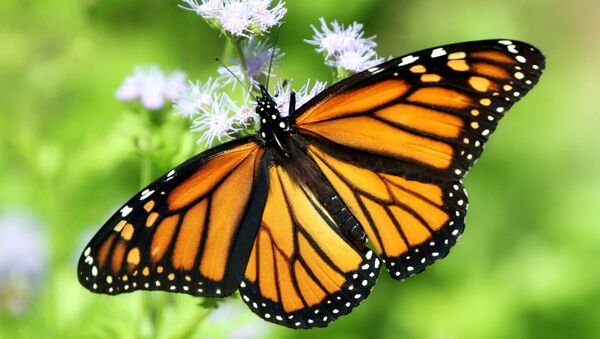A new study on insects has shown what scientists called an "awfully alarming" decline in population numbers of land-based species. In recent years, a lot of research has been done on this topic, but this recent study, conducted by an international team of scientists from Germany, the Netherlands, and Russia, is the largest carried out to date. It involves data from 166 long-term surveys conducted at 1,676 sites. The results have been published in the journal Science.
According to the research, the population of land-based insects like ants, butterflies, and grasshoppers is declining by 0.92 percent a year - that’s over nine percent a decade. This number paints a better picture, compared with previous studies, but the scientists say that the situation is still extremely serious.
"Over 30 years, it means a quarter less insects”, said Dr Roel Van Klink, the lead author of the study from the German Centre for Integrative Biodiversity Research. "And because it’s a mean, there are places where it is much worse than that."
One detail that shocked scientists is the fact that insects in nature reserves were doing slightly better than those that live in protected areas. According to the study, the biggest decline in numbers occurred in the US West and Midwest, as well as in Europe, especially in Germany.
At the same time, the researchers found that the population of insects that live in water, like mayflies and midges, has been growing by 1.08 percent a year, an 11 percent increase each decade. While the scientists say that this is good news, the bulk of insects are land-based.
The study doesn’t give conclusive proof of what has caused the decline in population, but said that the destruction of habitats due to urbanisation is the likely one cause. Previous studies blamed climate change, the use of pesticides, and land clearance for insects' disappearance.
Insects are an essential part of life on Earth, as they act as pollinators, food for other species, are nutrient cycling, and are responsible for pest control and decomposition. Three quarters of crops grown by humans are pollinated by insects.
"Ongoing decline on land at this rate will be catastrophic for ecological systems and for humans. Insects are pollinators, natural enemies of pests, decomposers and besides that, are critical to functioning of all Earth's ecosystems", said Nick Haddad, a butterfly expert at Michigan State University, who didn’t take part in the study.
Despite the alarming findings, scientists hope that this trend can be reversible.
"We believe that because we see these increases in fresh water insects, that are related to legislation being put in place, it makes us hopeful that if we put in place the right types of legislation for land insects we can also make them recover. The nice things about insects that most have incredibly large numbers of offspring, so if you change the habitat in the right way we will see them recover really fast", said Dr Roel Van Klink.



